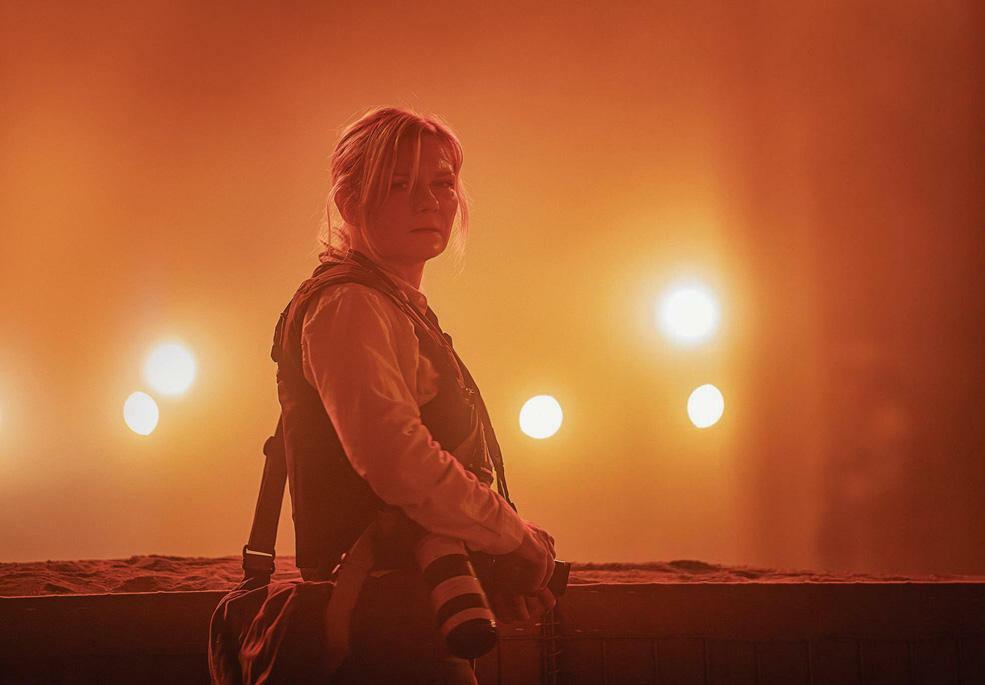
It was all part of a movie set, but to the actors starring in Civil War, felt all too real. The new film, opening in theaters April 12, takes place in a near-future United States ravaged by conflict. California and Texas, which make up the so-called Western Forces, have seceded from the union in response to an authoritarian third-term President who has jettisoned the Constitution, disbanded the FBI, authorized airstrikes on his own citizens, and now aims to "eliminate the final pockets of resistance." To create as credible a dystopia as possible, director Alex Garland and the crew turned parts of the Atlanta region into a soberingly plausible hot spot.
"It felt very disturbing," says Kirsten Dunst, one of the leads, of the film's blurring with reality. "Toward the end, it was all the noise and the gunfire, and then just looking at the news and seeing that there's another school shooting."
By the time Civil War premiered at the South by Southwest Film & TV Festival in mid-March, it had already generated some heat online. Reddit commenters debated whether invoking such severe domestic turbulence is irresponsible at a time when the nation's political divisions have reached a fever pitch. One person worried it "might be interpreted as a role model to MAGA groups if not portrayed carefully." Garland, the British science-fiction ace who made Ex Machina and Annihilation, anticipated polarized reactions. In a sense, they're why he made Civil War in the first place. "It's really a film about why polarization is not a great thing," he says. "It's trying to have a conversation. It's trying to find common ground."
This story is from the April 08, 2024 edition of Time.
Start your 7-day Magzter GOLD free trial to access thousands of curated premium stories, and 9,000+ magazines and newspapers.
Already a subscriber ? Sign In
This story is from the April 08, 2024 edition of Time.
Start your 7-day Magzter GOLD free trial to access thousands of curated premium stories, and 9,000+ magazines and newspapers.
Already a subscriber? Sign In

Q & A: Borge Brende
The World Economic Forum president talks with TIME editor Sam Jacobs

Q & A - Rene Haas
Arm's CEO on how his hardware is supporting the Fourth Industrial Revolution

The conflicts looming over 2025
WHEN DONALD TRUMP TOOK THE OATH OF OFFICE AS President in January 2017, his first foreign policy priority was to get tough on China. The Trump 2.0 Administration will continue that work. But when he strides back into the Oval Office in January 2025, Trump will also become responsible for U.S. management of two dangerous wars, the kinds of hot foreign policy crises he was fortunate to avoid during his first term.
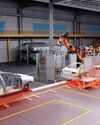
Rev Lebaredian
Nvidia's vice president of Omniverse and simulation technology on training AI-powered robots

5 predictions for AI in 2025
New uses and policy questions come into focus
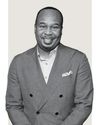
Roy Wood Jr. The comedian on his new stand-up special, the importance of working in food service, and learning from Keanu Reeves
8 QUESTIONS WITH Roy Wood Jr.
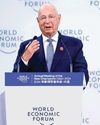
A call for global cooperation in the Intelligent Age
Cultivate wisdom along with innovation
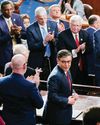
The D.C. Brief
IN THE END, THE THREAT OF A FARright revolt proved more menacing than most imagined, as Republican Mike Johnson initially came up short on Jan. 3 during the first balloting to keep him as Speaker.

The digital labor revolution
OVER THE PAST TWO YEARS, WE'VE WITNESSED advances in AI that have captured our imaginations with unprecedented capabilities in language and ingenuity. And yet, as impressive as these developments have been, they're only the opening act. We are now entering a new era of autonomous AI agents that take action on their own and augment the work of humans. This isn't just an evolution of technology. It's a revolution that will fundamentally redefine how humans work, live, and connect with one another from this point forward.

Tech we can trust
Serving humanity's best interests must be at the center of progress